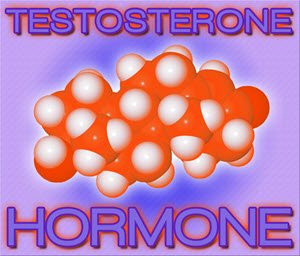Introduction to Endocrine and Muscular Disorders
Endocrine disorders, which involve disruptions in the hormonal systems of the body, can significantly impact the health and well-being of American men, particularly when coupled with muscular conditions. These disorders can range from thyroid dysfunction to diabetes and testosterone deficiency, each presenting unique challenges and requiring tailored management strategies. This article delves into the complexities of managing endocrine disorders in men with muscle conditions, offering insights and guidance from an endocrinological standpoint.
Understanding the Interplay Between Endocrine and Muscular Health
The endocrine system plays a crucial role in regulating muscle function and metabolism. Hormones such as testosterone, insulin, and thyroid hormones are essential for maintaining muscle mass, strength, and overall metabolic health. When these hormones are imbalanced due to endocrine disorders, men with pre-existing muscular conditions may experience exacerbated symptoms, including muscle weakness, fatigue, and decreased physical performance.
Common Endocrine Disorders in Men with Muscle Conditions
Several endocrine disorders are particularly relevant to men with muscular conditions. Hypogonadism, characterized by low testosterone levels, can lead to reduced muscle mass and strength, which can be particularly detrimental in men already struggling with muscle-related issues. Similarly, thyroid disorders such as hypothyroidism can cause muscle fatigue and weakness, further complicating existing muscular conditions.
Diabetes, another prevalent endocrine disorder, can lead to muscle wasting and neuropathy, which can severely impact mobility and quality of life. Understanding these disorders and their impact on muscle health is crucial for effective management and treatment.
Diagnostic Approaches and Monitoring
Diagnosing endocrine disorders in men with muscle conditions requires a comprehensive approach. Blood tests to measure hormone levels, such as testosterone, thyroid hormones, and glucose, are essential. Additionally, imaging studies and muscle biopsies may be necessary to assess the extent of muscle involvement and guide treatment decisions.
Regular monitoring is crucial, as hormonal imbalances can fluctuate and require adjustments in treatment. Men should work closely with their healthcare providers to establish a monitoring schedule that includes regular check-ups and blood work to track their hormonal status and muscle health.
Treatment Strategies and Lifestyle Interventions
Managing endocrine disorders in men with muscle conditions involves a multifaceted approach. Hormone replacement therapy (HRT) may be necessary for conditions like hypogonadism, where testosterone levels need to be restored to improve muscle mass and strength. For thyroid disorders, medications to regulate thyroid hormone levels can help alleviate muscle-related symptoms.
In the case of diabetes, a combination of medication, diet, and exercise is essential. A balanced diet rich in protein can support muscle health, while regular physical activity can help improve insulin sensitivity and muscle function. Men should work with a dietitian and a physical therapist to develop a personalized plan that addresses their specific needs.
The Role of Lifestyle and Preventive Measures
Lifestyle modifications play a significant role in managing endocrine disorders and supporting muscle health. Maintaining a healthy weight, engaging in regular exercise, and avoiding smoking and excessive alcohol consumption can help mitigate the impact of endocrine disorders on muscle conditions.
Preventive measures, such as regular health screenings and early intervention, can also make a significant difference. Men should be proactive about their health, seeking medical advice at the first sign of symptoms and adhering to recommended treatment plans.
Conclusion: A Holistic Approach to Health
Managing endocrine disorders in American men with muscle conditions requires a holistic approach that addresses both the hormonal imbalances and the specific needs of the muscular system. By understanding the interplay between these systems and implementing tailored treatment and lifestyle strategies, men can improve their quality of life and maintain their health and well-being. Collaboration with healthcare providers, including endocrinologists and physical therapists, is essential for achieving optimal outcomes and navigating the challenges posed by these complex conditions.
Contact Us Today For A Free Consultation

- Hormonal Imbalances and Sleep Disorders: Impact on American Men's Health and Interventions [Last Updated On: March 7th, 2025] [Originally Added On: March 7th, 2025]
- Vitamin D's Crucial Role in Endocrine Health for American Males [Last Updated On: March 16th, 2025] [Originally Added On: March 16th, 2025]
- Endocrinology's Role in Managing Chronic Fatigue in American Males [Last Updated On: March 17th, 2025] [Originally Added On: March 17th, 2025]
- Dietary Strategies for Enhancing Endocrine Health in American Men [Last Updated On: March 19th, 2025] [Originally Added On: March 19th, 2025]
- Endocrinology's Impact on Weight Management for American Males: Hormones and Strategies [Last Updated On: March 19th, 2025] [Originally Added On: March 19th, 2025]
- Hormonal Changes in Aging American Men: Impacts and Management Strategies [Last Updated On: March 19th, 2025] [Originally Added On: March 19th, 2025]
- Endocrine Health and Cancer Risk in American Men: A Comprehensive Analysis [Last Updated On: March 19th, 2025] [Originally Added On: March 19th, 2025]
- Autoimmune Endocrine Disorders in Males: Symptoms, Diagnosis, and Treatment Strategies [Last Updated On: March 19th, 2025] [Originally Added On: March 19th, 2025]
- PCOS in Transgender Men: Diagnosis, Management, and Holistic Care Approaches [Last Updated On: March 20th, 2025] [Originally Added On: March 20th, 2025]
- Endocrine Disruptors: Impact on American Male Health and Mitigation Strategies [Last Updated On: March 21st, 2025] [Originally Added On: March 21st, 2025]
- Lifestyle Impacts on Endocrine Health: A Guide for American Men [Last Updated On: March 21st, 2025] [Originally Added On: March 21st, 2025]
- Hormonal Optimization in Sports: Enhancing Performance Ethically for American Male Athletes [Last Updated On: March 21st, 2025] [Originally Added On: March 21st, 2025]
- Male Infertility and Endocrinology: Understanding Hormonal Impacts on Fertility [Last Updated On: March 21st, 2025] [Originally Added On: March 21st, 2025]
- Gout in American Males: Endocrine Influences and Management Strategies [Last Updated On: March 22nd, 2025] [Originally Added On: March 22nd, 2025]
- Endocrinology's Impact on Sexual Health in American Males: Hormones, Dysfunction, and Holistic Care [Last Updated On: March 22nd, 2025] [Originally Added On: March 22nd, 2025]
- Hormonal Imbalances and Kidney Health: Critical Insights for American Men [Last Updated On: March 23rd, 2025] [Originally Added On: March 23rd, 2025]
- Endocrine Health and Mental Well-being: A Comprehensive Guide for American Males [Last Updated On: March 23rd, 2025] [Originally Added On: March 23rd, 2025]
- Alcohol's Impact on Endocrine System in American Males: A Comprehensive Analysis [Last Updated On: March 23rd, 2025] [Originally Added On: March 23rd, 2025]
- Hormonal Influences on Joint Health in American Men: A Comprehensive Guide [Last Updated On: March 23rd, 2025] [Originally Added On: March 23rd, 2025]
- Hormonal Impacts on Men's Immune Health in the U.S.: Insights and Strategies [Last Updated On: March 24th, 2025] [Originally Added On: March 24th, 2025]
- Endocrine-Neurological Interplay in American Men: Diagnosis, Management, and Future Research [Last Updated On: March 24th, 2025] [Originally Added On: March 24th, 2025]
- Hormonal Imbalances and Their Role in Managing Male Depression in America [Last Updated On: March 24th, 2025] [Originally Added On: March 24th, 2025]
- Managing Endocrine Disorders in American Men with Autoimmune Diseases: A Comprehensive Guide [Last Updated On: March 24th, 2025] [Originally Added On: March 24th, 2025]
- Hormonal Dynamics and Skin Health in American Men: Androgens, Acne, Aging, and Lifestyle [Last Updated On: March 24th, 2025] [Originally Added On: March 24th, 2025]
- Endocrine Health and Prostate Cancer: Insights for American Men [Last Updated On: March 25th, 2025] [Originally Added On: March 25th, 2025]
- Managing Endocrine Disorders and Heart Disease in American Men: Strategies and Insights [Last Updated On: March 25th, 2025] [Originally Added On: March 25th, 2025]
- Exercise Impacts on Endocrine Function in American Males: Hormonal Health Benefits [Last Updated On: March 25th, 2025] [Originally Added On: March 25th, 2025]
- Endocrine Disorders in Men: Impact on Skin Health and Management Strategies [Last Updated On: March 25th, 2025] [Originally Added On: March 25th, 2025]
- Managing Type 2 Diabetes in American Men: Endocrine Insights and Strategies [Last Updated On: March 25th, 2025] [Originally Added On: March 25th, 2025]
- Endocrine System and Liver Health in American Males: A Comprehensive Analysis [Last Updated On: March 25th, 2025] [Originally Added On: March 25th, 2025]
- Endocrine and Gastrointestinal Health Management Strategies for American Men [Last Updated On: March 25th, 2025] [Originally Added On: March 25th, 2025]
- Hormonal Influences on Muscle Health in American Males: A Comprehensive Overview [Last Updated On: March 25th, 2025] [Originally Added On: March 25th, 2025]
- Endocrine Health's Impact on Respiratory Function in American Males: A Comprehensive Overview [Last Updated On: March 25th, 2025] [Originally Added On: March 25th, 2025]
- Exploring ADHD and Endocrinology: Hormonal Imbalances and New Treatment Avenues [Last Updated On: March 26th, 2025] [Originally Added On: March 26th, 2025]
- Exploring Endocrinological Interventions for PTSD in American Males [Last Updated On: March 26th, 2025] [Originally Added On: March 26th, 2025]
- Endocrinology's Role in Managing Insomnia Among American Males [Last Updated On: March 26th, 2025] [Originally Added On: March 26th, 2025]
- Endocrinology's Vital Role in Treating Male Eating Disorders in the U.S. [Last Updated On: March 26th, 2025] [Originally Added On: March 26th, 2025]
- Stress Impact on Male Endocrine Health: Hormones and Holistic Management Strategies [Last Updated On: March 26th, 2025] [Originally Added On: March 26th, 2025]
- Smoking's Impact on Endocrine Health in American Men: Testosterone, Thyroid, and More [Last Updated On: March 26th, 2025] [Originally Added On: March 26th, 2025]
- Hormonal Imbalances and Hearing Loss in American Males: Causes and Prevention [Last Updated On: March 27th, 2025] [Originally Added On: March 27th, 2025]
- Hormonal Imbalances and Foot Health: A Guide for American Men [Last Updated On: March 27th, 2025] [Originally Added On: March 27th, 2025]
- Caffeine's Impact on Endocrine Health in American Males: Cortisol, Insulin, Testosterone, Thyroid [Last Updated On: March 27th, 2025] [Originally Added On: March 27th, 2025]
- Endocrine Health and Vision: Insights for American Males [Last Updated On: March 27th, 2025] [Originally Added On: March 27th, 2025]
- Hormonal Fluctuations and Oral Health in American Men: Insights and Recommendations [Last Updated On: March 28th, 2025] [Originally Added On: March 28th, 2025]
- Hormonal Hair Loss in American Men: Causes, Treatments, and Future Research [Last Updated On: March 28th, 2025] [Originally Added On: March 28th, 2025]
- Hormonal Imbalances and Male Anxiety: Endocrinological Insights and Treatments in the USA [Last Updated On: March 28th, 2025] [Originally Added On: March 28th, 2025]
- Sleep's Impact on Endocrine Health: Key Hormones and Practical Sleep Improvement Tips for American Males [Last Updated On: March 28th, 2025] [Originally Added On: March 28th, 2025]
- Endocrine System's Impact on Digestive Health in American Males: A Comprehensive Overview [Last Updated On: March 28th, 2025] [Originally Added On: March 28th, 2025]
- Nutrition's Impact on Endocrine Health in American Males: Key Nutrients and Diets [Last Updated On: March 29th, 2025] [Originally Added On: March 29th, 2025]
- Endocrine Health and Nail Changes in American Males: A Vital Connection [Last Updated On: March 29th, 2025] [Originally Added On: March 29th, 2025]
- Endocrinological Approaches Enhance Bipolar Disorder Treatment in American Men [Last Updated On: March 30th, 2025] [Originally Added On: March 30th, 2025]
- Endocrine Disorders and Eye Health: Management Strategies for American Men [Last Updated On: March 31st, 2025] [Originally Added On: March 31st, 2025]
- Endocrine Health and Hand Conditions in American Males: Insights and Management [Last Updated On: April 1st, 2025] [Originally Added On: April 1st, 2025]
- Endocrine Disorders and Ear Health: A Comprehensive Guide for American Men [Last Updated On: April 1st, 2025] [Originally Added On: April 1st, 2025]
- Hormonal Fluctuations and Nasal Health in American Men: Symptoms and Management [Last Updated On: April 1st, 2025] [Originally Added On: April 1st, 2025]
- Hydration's Crucial Role in Endocrine Health for American Males [Last Updated On: April 3rd, 2025] [Originally Added On: April 3rd, 2025]
- Endocrine Health and Throat Conditions in American Males: Hormonal Impacts and Management [Last Updated On: April 5th, 2025] [Originally Added On: April 5th, 2025]
- Schizophrenia in Males: The Role of Endocrinology in Treatment and Management [Last Updated On: April 6th, 2025] [Originally Added On: April 6th, 2025]
- Managing Endocrine Disorders in American Men with Lung Conditions: An Endocrinological Approach [Last Updated On: April 6th, 2025] [Originally Added On: April 6th, 2025]
- Dietary Supplements' Impact on Endocrine Health in American Males: A Comprehensive Analysis [Last Updated On: April 8th, 2025] [Originally Added On: April 8th, 2025]
- Hormonal Balance and Heart Health: A Guide for American Men [Last Updated On: April 9th, 2025] [Originally Added On: April 9th, 2025]
- Exploring Hormonal Influences on Autism in American Males: Endocrine Insights and Therapies [Last Updated On: April 10th, 2025] [Originally Added On: April 10th, 2025]
- Endocrine System's Impact on Blood Health in American Males: Hormones, Disorders, and Management [Last Updated On: April 10th, 2025] [Originally Added On: April 10th, 2025]
- Mental Health's Impact on Endocrine Function in American Males: An Integrated Approach [Last Updated On: April 11th, 2025] [Originally Added On: April 11th, 2025]
- Exploring Endocrine Approaches to Treating OCD in American Males [Last Updated On: April 11th, 2025] [Originally Added On: April 11th, 2025]
- Endocrine and Nerve Health in American Males: Hormones, Disorders, and Lifestyle Impact [Last Updated On: April 11th, 2025] [Originally Added On: April 11th, 2025]
- Managing Endocrine Disorders in American Men with Kidney Disease: A Comprehensive Guide [Last Updated On: April 13th, 2025] [Originally Added On: April 13th, 2025]
- Hormonal Balance and Brain Health in American Men: Endocrinology Insights [Last Updated On: April 13th, 2025] [Originally Added On: April 13th, 2025]
- Exploring Endocrine Therapy for Managing ADD Symptoms in American Males [Last Updated On: April 16th, 2025] [Originally Added On: April 16th, 2025]
- Aging and Endocrine Function in American Males: Impacts and Management Strategies [Last Updated On: April 17th, 2025] [Originally Added On: April 17th, 2025]
- Hormonal Influences on Bone Health in Aging American Men [Last Updated On: April 19th, 2025] [Originally Added On: April 19th, 2025]
- Endocrine Health's Impact on Joint Function in American Males: Hormonal Connections [Last Updated On: April 19th, 2025] [Originally Added On: April 19th, 2025]
Word Count: 616





















